The disaster that shook the passengers of the Costa Concordia when the ship ran aground and capsized near the Island of Giglio, Italy, while probably the most tragic in recent memory, was not the first tragedy of its kind.
In 1998, the Monarch of the Seas had an eerily similar incident, which, thankfully for the thousands of passengers on board, did not result in the loss of a single life.
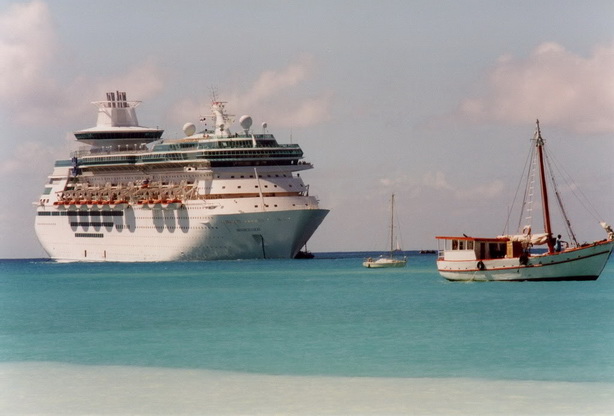
On December 15, 1998, the cruise ship, Monarch of the Seas, operated by Miami based cruise company Royal Caribbean Cruises, was in the Bahamas, en route from St Thomas, U.S. Virgin Islands to Martinique. The ship had purposely deviated from its intended course in order to sail into St. Marteen to disembark a sick passenger who needed immediate hospitalization.
While the vessel awaited the return of the vessel’s crew, the ship drifted freely on an easterly heading. At about 1:25 a.m., the doctor and nurse returned to the vessel. The ship’s master himself then piloted the ship to starboard from an easterly course heading, steadied the vessel up and set a departure course of 160 degrees true to pass east of a marked reef known as the Proselyte reef. This course was based largely on the master’s mariner eye as well as on the Officer of the Watch’s feedback that the Automatic Radar Plotting Aid’s calculated Closest Point of Approach to the Proselyte reef lighted buoy on the 160-degree course. The master felt that this course provided the vessel a safe passage to the east of Proselyte reef as well as would allow a safe passage astern of an outbound sailboat that was just to the south and ahead of the Monarch of the Seas in the vicinity of the Proselyte Reef lighted buoy.
Unfortunately, the course of 160 degrees was established without first sufficiently determining the initial position of the vessel. Further, no track line for the 160-degree course was laid down or marked on the navigational chart in use at the time nor was the 160-degree course part of the voyage plan from St. Maarten to Martinique. Additionally, the ship’s chart used at the time of the grounding, was not updated with respect to an updated position of the lighted buoy on proselyte Reef.
The ship’s master steered the vessel on the right path before handing over the navigational watch to the Officer of the Watch. Before leaving the bridge, the ship’s master asked “How are we doing with clearance to buoy?” To this the Officer of the Watch replied “Closest point would be three cables off and safe.”
Three minutes later, at approximately 1:30 a.m., the Monarch of the Seas raked the Proselyte Reef at an approximate speed of about 12 knots without becoming permanently stranded. Almost immediately emergency and abandon ship signals were sounded and the crew and passengers were mustered at their abandon ship stations.
To learn more about the events described above, read the Joint Report of Investigation into the Circumstances surrounding the grounding of the Monarch of the Seas.
At 2:35 a.m., the vessel was intentionally grounded on a sandbar in Great Bay, St. Maarten. The evacuation of passengers and crew began immediately and by 5:15 a.m., all 2,557 passengers were safely evacuated ashore by shore based tender vessels.
The Joint report by the United States Coast Guard and the Maritime Investigator (Osla, Norway) concluded that the primary cause of the grounding was human error by the ship’s master and his Bridge Resource Management Team. Multiple failures were assessed including:
(1) Accurately determine the position of their ship in relation to a known reef area.
(2) To navigate their ship in a manner which would give wide berth to such a hazard.
The investigation on the Costa Concordia disaster is still in its early stages, and yet an enormous amount of information and reliable evidence has already surfaced. It seems established that the ship deviated from its original course. Unlike the ship’s master of the Monarch of the Seas, Captain Francesco Schettino’s deviation was intentional and not necessary. Read this article to find out why Captain Schettino sailed so close to the Island of Giglio.
Continue reading
 Cruise Ship Lawyers Blog
Cruise Ship Lawyers Blog


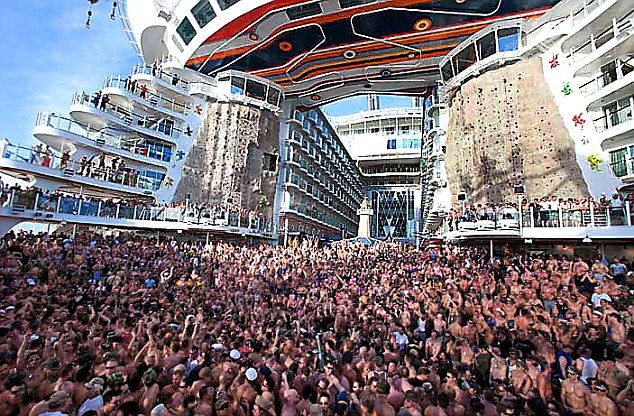
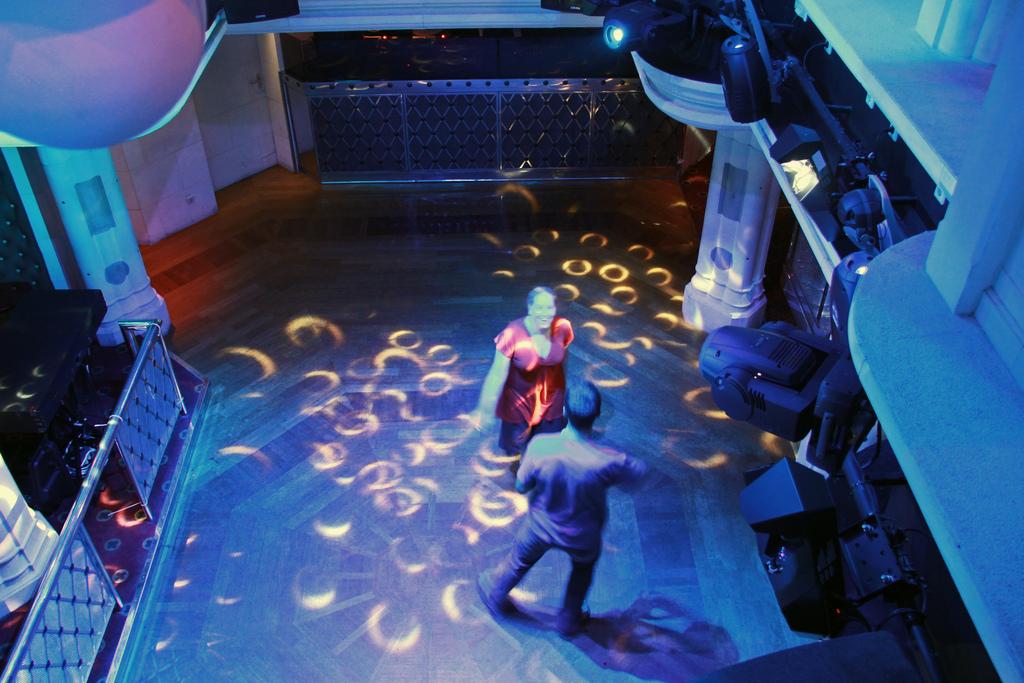
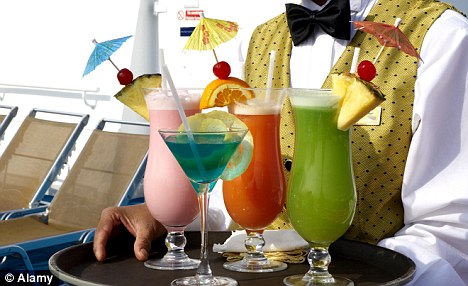



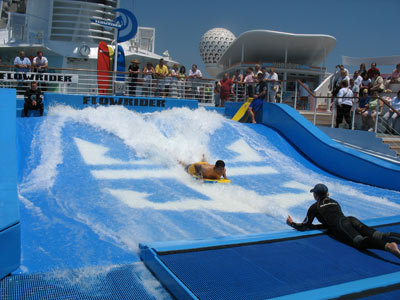 Charlene Johnson was a passenger on the Oasis of the Sea cruise ship owned by Royal Caribbean Cruise. Mrs. Johnson wanted to ride the Flowrider, a simulated surfing and body boarding activity located on the ship. Before Charlene Johnson, or any passenger, could ride the Flowrider, she was required to read and sign her name to an electronic “Onboard Activity Waiver”. By signing such waiver, Charlene Johnson agreed to waive her rights and release Royal Caribbean Cruises, Ltd., and its employees from legal actions “arising from any accident or injury resulting from her participation in any and all of the shipboard activities she selected” (including the Flowrider). In other words, Charlene Johnson agreed to waive her rights to file a lawsuit against the cruise line and its employees should she injure herself while using the Flowrider.
Charlene Johnson was a passenger on the Oasis of the Sea cruise ship owned by Royal Caribbean Cruise. Mrs. Johnson wanted to ride the Flowrider, a simulated surfing and body boarding activity located on the ship. Before Charlene Johnson, or any passenger, could ride the Flowrider, she was required to read and sign her name to an electronic “Onboard Activity Waiver”. By signing such waiver, Charlene Johnson agreed to waive her rights and release Royal Caribbean Cruises, Ltd., and its employees from legal actions “arising from any accident or injury resulting from her participation in any and all of the shipboard activities she selected” (including the Flowrider). In other words, Charlene Johnson agreed to waive her rights to file a lawsuit against the cruise line and its employees should she injure herself while using the Flowrider.